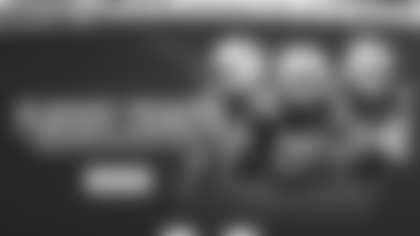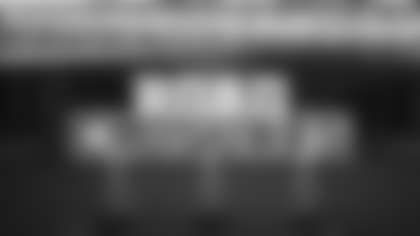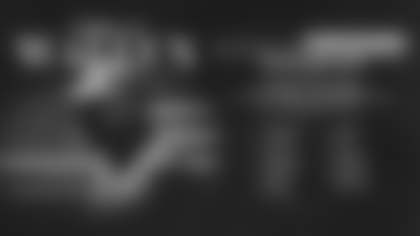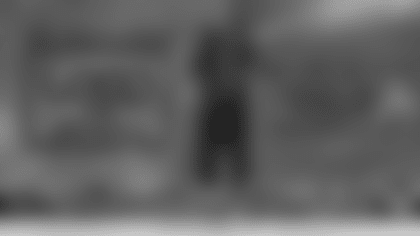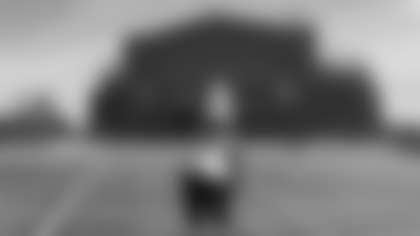Colts to Begin Off-Season Conditioning Program
Monday
INDIANAPOLIS – As Tony Dungy sees it, Monday is a big day.
Not because Dungy will be in Palm Beach, Fla., for the NFL Owners Meetings, but because of what's going on at the Colts' Practice Facility: the first day of the team's voluntary off-season conditioning program.
That means for many players the short off-season is over.
They'll work out.
They'll meet with coaches.
They'll begin preparing with an eye on next season.
It's not the official start of the 2008 NFL season, but Dungy – in his seventh season as the Colts' head coach – said it's the unofficial beginning, and more imantly, it's the beginning of what he considers a critically important phase of preparation.
"We were trying to find a happy medium," Dungy said of the March 31 start date. "(We wanted a date) where we could get the guys in, but also give them some time off, that when they do come in, they want to really work and get that feeling of camaraderie again.
"We chose that first week of April. I think it's good. I think the guys are anxious to come in and get with each other again and get on a formalized program. We do get a lot of work done."
The Colts, winners of the last five AFC South titles and a playoff team the last six seasons, finished 13-3 last season, losing to the San Diego Chargers, 28-24, in an AFC Divisional Playoff game at the RCA Dome. They will begin play in state-of-the-art Lucas Oil Stadium next season.
The off-season program is scheduled to run from Monday through early July, a period that will include two mini-camps and up to 14 organized team activities – or "OTAs," as they are commonly called around the league. The Colts are scheduled to report to training camp in late July, and will play the Washington Redskins in the Hall of Fame Game on Sunday, August 3, in Canton, Ohio.
"The off-season is just as important as the season," Colts third-year linebacker Freddy Keaiho said. "The season is the product of what you put into the off-season, so it's extremely important. The most progress is made in OTAs, going through camp, getting a feel for everybody, learning from mistakes in OTAs and just improving that way.
"It's the first opportunity you have to improve. I would say it's important time for everybody. It's about refining your skills and just getting your timing back. It's extremely important."
Dungy long has believed that players make their largest improvement between their first and second seasons, and the off-season is a critical part of that process.
"It's a big part of what we do," Dungy said. "You can get a lot of individualized work. You can make a lot of growth. I really think that's why a lot of young guys improve so much between their first and second year and between their second and third year.
"(A player such as cornerback) Kelvin Hayden can come in and sit down with (secondary coach) Alan Williams all spring, talk through different things and see exactly how it's supposed to be done, watch video, watch cutups and grow and learn. Then, he's ready to blossom in training camp."
The Colts' approach during this off-season will be slightly different than past off-seasons, Dungy said. He said the idea will be to work more with individuals and not focus as much on team activities.
"Probably our biggest goal this year is to get our young guys as much work as they can and we'll get to see that improvement from those second- and third-year guys," Dungy said. "That's going to be our focus, I think, this year – more individualized, not as much group stuff, not as much in classroom situations.
"We're going to tailor it a lot to our younger guys. We have a good core group of guys and we haven't changed a lot of what we're going to do offensively and defensively. A lot of it will be working with and getting those young guys to learn the ins and outs of their position."
The idea, Dungy said, is to get the young players prepared for the OTAs, in which most veterans participate. The OTAs sessions typically feature more team drills and will run the final two weeks of May and first two weeks of June.
"It's kind of getting the young guys and the new guys we signed up to date on what we do, so we can go into summer school and function pretty smoothly," Dungy said. "It's kind of a part-whole type of thing, where they see how it works for them individually and then you put it together as a group in summer school and see how it would look. Summer school is where you really count on your veterans to relate to the guys how we do things.
"Many people overlook that part of it. When they say, 'How is your team going to get better?,' they think that means, 'Who are you going to bring in who's different?' as opposed to, 'How do you get the guys who are already here playing better?' Our coaches are able to do that quite well."



